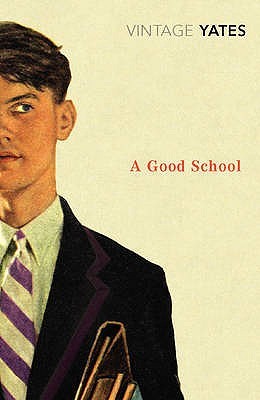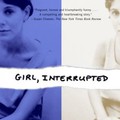Richard Yates: A Good School
 The novel is set at Dorset Academy, a supposedly elite, but in fact rather second-rate private prep school for boys, at the beginning of the 1940s. Some claim that it's a good school, some claim it's merely unusual – I would say that it's unusual to the extent all private preps are unusual – at least in literature. The school is situated at an idyllic spot somewhere in Connecticut, far from the noise and calamities of „reality”. All the passions, emotions and sexual drives of the students and teachers are confined within a relatively small space, and since there are no „outsiders” and no proper outlets for their passions, everyone's forced to settle for the people who are right there, and content himself with (sickly) amusements and more or less sadistic games. For instance, the wife of the crippled chemistry teacher spends her afternoons with the French teacher, the number one badass in a ten-mile radius; the older students amuse themselves with bullying those who seem to be weak; and the gym teacher likes to exhaust all his students to death – of course, only in order to make sure that they are in good physical condition when they go to fight in World War II after graduation.
The novel is set at Dorset Academy, a supposedly elite, but in fact rather second-rate private prep school for boys, at the beginning of the 1940s. Some claim that it's a good school, some claim it's merely unusual – I would say that it's unusual to the extent all private preps are unusual – at least in literature. The school is situated at an idyllic spot somewhere in Connecticut, far from the noise and calamities of „reality”. All the passions, emotions and sexual drives of the students and teachers are confined within a relatively small space, and since there are no „outsiders” and no proper outlets for their passions, everyone's forced to settle for the people who are right there, and content himself with (sickly) amusements and more or less sadistic games. For instance, the wife of the crippled chemistry teacher spends her afternoons with the French teacher, the number one badass in a ten-mile radius; the older students amuse themselves with bullying those who seem to be weak; and the gym teacher likes to exhaust all his students to death – of course, only in order to make sure that they are in good physical condition when they go to fight in World War II after graduation.
The novel is of a rather fragmented structure, and it's made up of a series of loosely connected episodes. And in fact, nothing really unusual happens in the story: a couple of school-years pass, and the regular course of events is only slightly disturbed by the fact that some graduates die in World War II – actually, this provides the editor of the school paper with the wonderful opportunity to publish some warm, patriotic pieces in the paper. Apart from these distant connections with what's going on „out there”, Dorset Academy is indeed a very closed community, and the successes and failures of the characters only matter within the boundaries of the school: no-one out there is interested in who cheats on whom within the gates of Dorset, and it's of no real importance whatsoever that one of the characters, William Grove, who starts out as an often-bullied loser, slowly sheds his loser role and emerges as an important person as the editor-in-chief of the school paper.
We get glimpses of the lives of a whole lot of characters, but the unsettling, detailed emotional analysis which is characteristic of, for instance, Revolutionary Road is missing from this novel – here Yates doesn't dig deep into the psyche of his characters. If I really want to, I can claim that the protagonist of this novel is the already mentioned William Grove, and I may consider the book his coming-of-age story (especially since the novel is framed by his prologue and epilogue, written in the first person singular, in which he summarizes his expectations of and experiences at Dorset Academy), but I'd rather say that there's no main character in this novel – simply no-one is that important and interesting here. But anyway, why would anyone be more important than all the others? Nothing really significant happens to anyone in this novel, or at least nothing that couldn't happen to any of the others.
All this may not sound mind-blowingly exciting, and indeed, when I first finished the novel I felt I was missing something – I would have been glad to read more details about the characters, and I would have liked to get more „drama”, more action, more digging into lives. But as time passed, I came to the conclusion that this novel is good exactly the way it is – and the fragmentary, muddled way Yates depicts the lives of these less-than-exciting, ordinary characters is true to life (life as it usually is).





